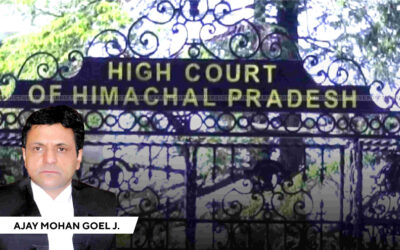BNS Section 193 – Liability of owner, occupier etc , of land on which an unlawful assembly or riot takes place
The Indian Penal Code (IPC) Section – 154 – 156
Liability of Owner, Occupier, or Interested Persons for Unlawful Assembly or Riot
Introduction
Under Section 193 of the Bharatiya Nyay Sanhita (BNS), the law holds owners, occupiers, or persons with an interest in land accountable if an unlawful assembly or riot takes place on their property. This provision ensures that individuals responsible for the land take necessary steps to prevent or suppress such events. Let’s break it down in simple terms.
What is the Offence?
The law imposes liability on:
- Owners or occupiers of land where an unlawful assembly or riot occurs.
- Persons with an interest in the land.
- Agents or managers of such owners or occupiers.
These individuals must act responsibly to prevent or suppress unlawful assemblies or riots if they have knowledge or reason to believe such events might occur.
Key Elements of the Offence
| Aspect | Details |
|---|---|
| Unlawful Assembly | A gathering of five or more people with a common unlawful objective. |
| Riot | When such a group acts violently in furtherance of their objective. |
| Duty to Inform Authorities | Owners, occupiers, or their agents must immediately inform the nearest police station if they know or believe an unlawful assembly or riot is happening or likely to happen. |
| Duty to Prevent or Suppress | They must use all lawful means to prevent the event or to disperse it if it occurs. |
| Benefit from Riot | If a riot is committed for the benefit of the owner, occupier, or interested person, they are liable if they did not take steps to prevent it. |
| Agent or Manager Responsibility | Agents or managers must also take steps to prevent or suppress riots or unlawful assemblies. |
Punishment
| Scenario | Punishment |
|---|---|
| Owner or Occupier | Fine up to ₹1,000 for failing to inform authorities or prevent/suppress the event. |
| Person Benefiting from Riot | Fine for failing to use lawful means to prevent the riot. |
| Agent or Manager | Fine for failing to use lawful means to prevent the riot. |
Type of Offence
| Aspect | Details |
|---|---|
| Cognizable/Non-cognizable | Non-cognizable: Police cannot arrest without a warrant. |
| Bailable/Non-bailable | Bailable: The accused can claim bail as a right. |
| Court | The case will be tried by any Magistrate. |
Purpose of the Law
- Maintain Public Order: To ensure that landowners and occupiers take responsibility for maintaining order on their property.
- Prevent Violence: To discourage negligence or complicity in allowing unlawful assemblies or riots to occur.
- Hold Individuals Accountable: To penalize those who fail to act responsibly to prevent or suppress such events.
Examples of Offences
- Failure to Inform: An owner knows a riot is likely to occur on their property but does not inform the police.
- Benefiting from Riot: A landowner benefits from a riot that occurs on their land but does not take steps to prevent it.
- Agent Negligence: A manager of a property fails to disperse an unlawful assembly despite having the means to do so.
Conclusion
This law ensures that owners, occupiers, and their agents take active steps to prevent or suppress unlawful assemblies or riots on their property. By holding them accountable, it aims to maintain public order and prevent violence.
Summary Table
| Offence | Punishment | Cognizable/Non-cognizable | Bailable/Non-bailable | Court |
|---|---|---|---|---|
| Owner or occupier of land not giving information of riot, etc. | Fine up to ₹1,000 | Non-cognizable | Bailable | Any Magistrate |
| Person for whose benefit or on whose behalf a riot takes place not using all lawful means to prevent it | Fine | Non-cognizable | Bailable | Any Magistrate |
| Agent of owner or occupier for whose benefit a riot is committed not using all lawful means to prevent it | Fine | Non-cognizable | Bailable | Any Magistrate |

